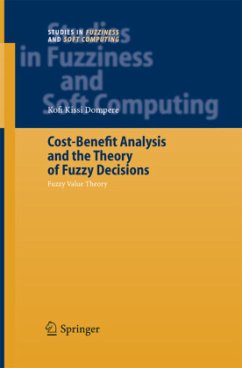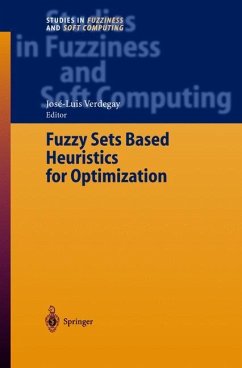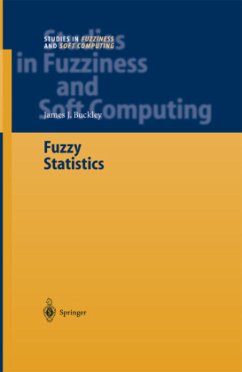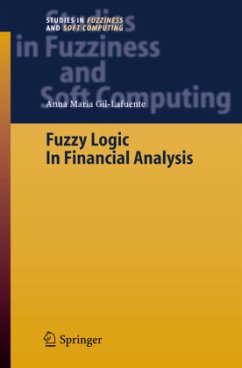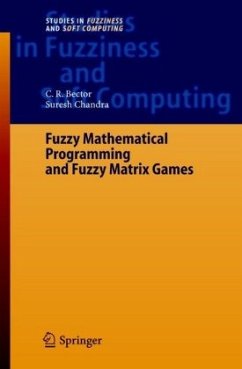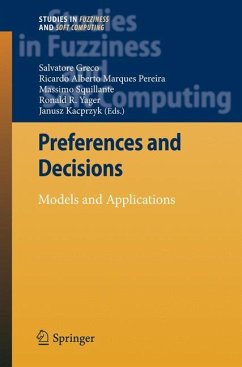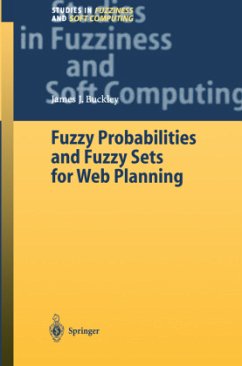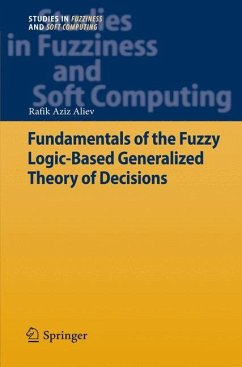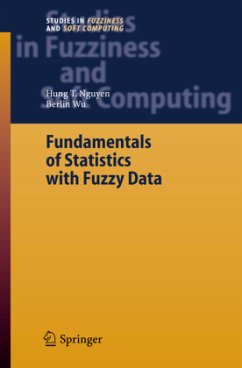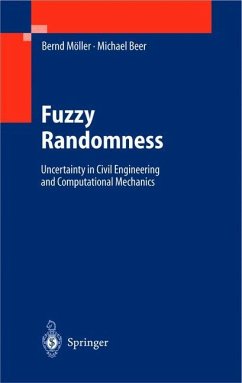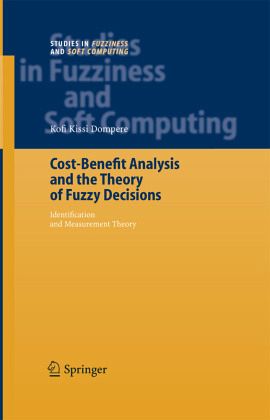
Cost-Benefit Analysis and the Theory of Fuzzy Decisions
Identification and Measurement Theory
Versandkostenfrei!
Versandfertig in 6-10 Tagen
115,99 €
inkl. MwSt.
Weitere Ausgaben:

PAYBACK Punkte
58 °P sammeln!
The genus of definitions for the theoretical sciences is (the province of) the habitus of the intellective intention, for the practical sciences, however, that of the effective intention; the objects and ends constitute the specific differ ence There is nothing in the intellect that has not already been in the senses, that is, in the sensory organs, that has not already been in sensible things from which are distinguished things not perceptible to the senses. Nothing can be of the mind, sensation and the thing inferred therefrom except the operation itself. Real learning is cognition of things...
The genus of definitions for the theoretical sciences is (the province of) the habitus of the intellective intention, for the practical sciences, however, that of the effective intention; the objects and ends constitute the specific differ ence There is nothing in the intellect that has not already been in the senses, that is, in the sensory organs, that has not already been in sensible things from which are distinguished things not perceptible to the senses. Nothing can be of the mind, sensation and the thing inferred therefrom except the operation itself. Real learning is cognition of things in themselves. It thus has the basis of its certainty in the known thing. This is established in two ways: by demon stration in the case of contemplative things, and by induction in the case of things perceptible to the senses. In contrast with real learning there is pos sible, probable and fictive learning. Antonius Gvilielmus Amo Afer (1827) This research has been long in the making. Its conception began in my last years in the doctoral program at Temple University, Philadelphia, Pa. It was simultaneously conceived with my two books on the Neo Keynesian Theory of Optimal aggregate investment and output dynamics [201] [202] as well as reflections on the methodology of decision-choice rationality and development economics [440] [441]. Economic theories and social policies were viewed to have, among other things, one impor tant thing in common in that they relate to decision making under different.





